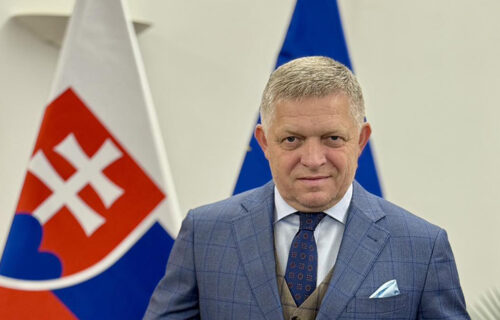Slovakia’s Prime Minister Robert Fico has once again thrown the European Union’s sanctions process into disarray, vetoing the latest package of measures against Russia and demanding that the bloc address what he calls “Europe’s real crises” — spiralling energy costs and a struggling automotive sector. The decision, taken in mid-October, left Slovakia and Austria standing alone against a deal that most other member states had expected to pass smoothly.
The sanctions package, the EU’s nineteenth since the invasion of Ukraine, includes new restrictions on Russian liquefied natural gas, oil infrastructure, and financial networks used to circumvent previous measures. But at a meeting of EU ambassadors in Brussels, Slovakia confirmed it would block the agreement, forcing its postponement until at least November.
Fico’s stance has become increasingly confrontational toward Brussels. Speaking after a call with European Council President António Costa, he said he would not back any new measures targeting Moscow until EU leaders commit to practical steps that relieve pressure on Europe’s traditional industries. In his view, the bloc’s focus on supporting Ukraine has overshadowed the economic hardship facing European citizens.
Behind Fico’s objections lies Slovakia’s heavy dependence on Russian energy and the country’s concentration in automotive manufacturing, which together make it vulnerable to both sanctions and the EU’s green transition. Bratislava has long argued that sanctions are damaging national economies already stretched by inflation and high electricity prices.
The Slovak leader’s latest move echoes his tactics from earlier in the year, when he withheld consent for a previous sanctions package until Brussels provided assurances about energy security and state-aid flexibility. This time, his demands extend to broader economic policy, insisting that next week’s EU summit deliver concrete measures for the car industry.
Austria, meanwhile, has complicated negotiations further by pressing for a partial unfreezing of Russian assets to compensate Raiffeisen Bank International for a legal defeat in Moscow. Vienna’s proposal has been met with resistance from other EU members, who warn it could set a dangerous precedent.
European diplomats expressed frustration at what some called “hostage diplomacy,” arguing that Fico and his allies are using the unanimity rule for leverage unrelated to Ukraine. France, Poland, and the Baltic states have urged the Commission to find ways of limiting individual veto power in foreign policy decisions — an idea gaining traction as divisions deepen.
Fico, however, remains defiant. His government insists that Slovakia’s priority is to protect domestic jobs and competitiveness. He has also criticised the EU’s planned 2035 ban on new combustion-engine vehicles, calling it unrealistic and harmful to Europe’s industrial base.
The European Commission maintains that sanctions remain a vital tool in limiting Moscow’s capacity to finance its war. Commission President Ursula von der Leyen has warned that sacrificing political unity for short-term national concerns risks undermining both Europe’s credibility and its security.
With the next European Council meeting set for late October, Slovakia plans to present detailed proposals on energy affordability and industrial competitiveness. Until then, the EU’s latest sanctions package — months in the making — remains frozen, a symbol of how internal divisions can stall the bloc’s response to one of the most consequential conflicts in modern European history.
